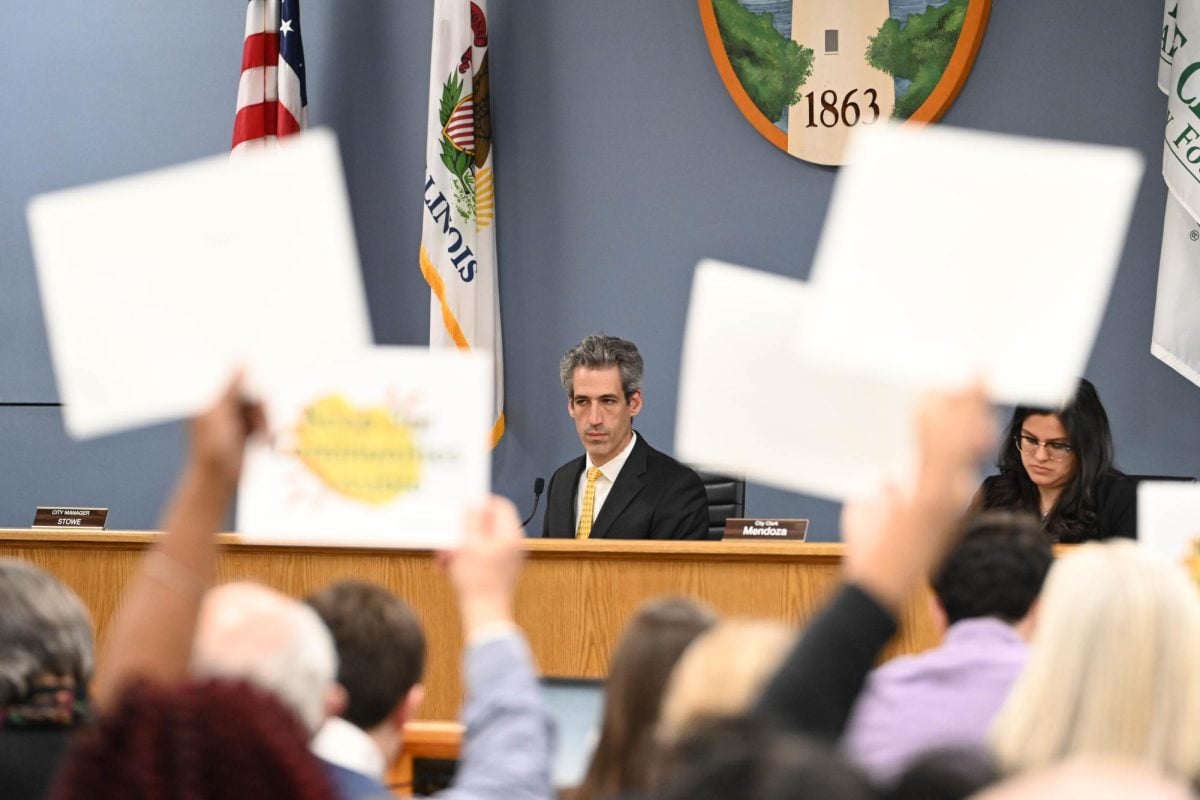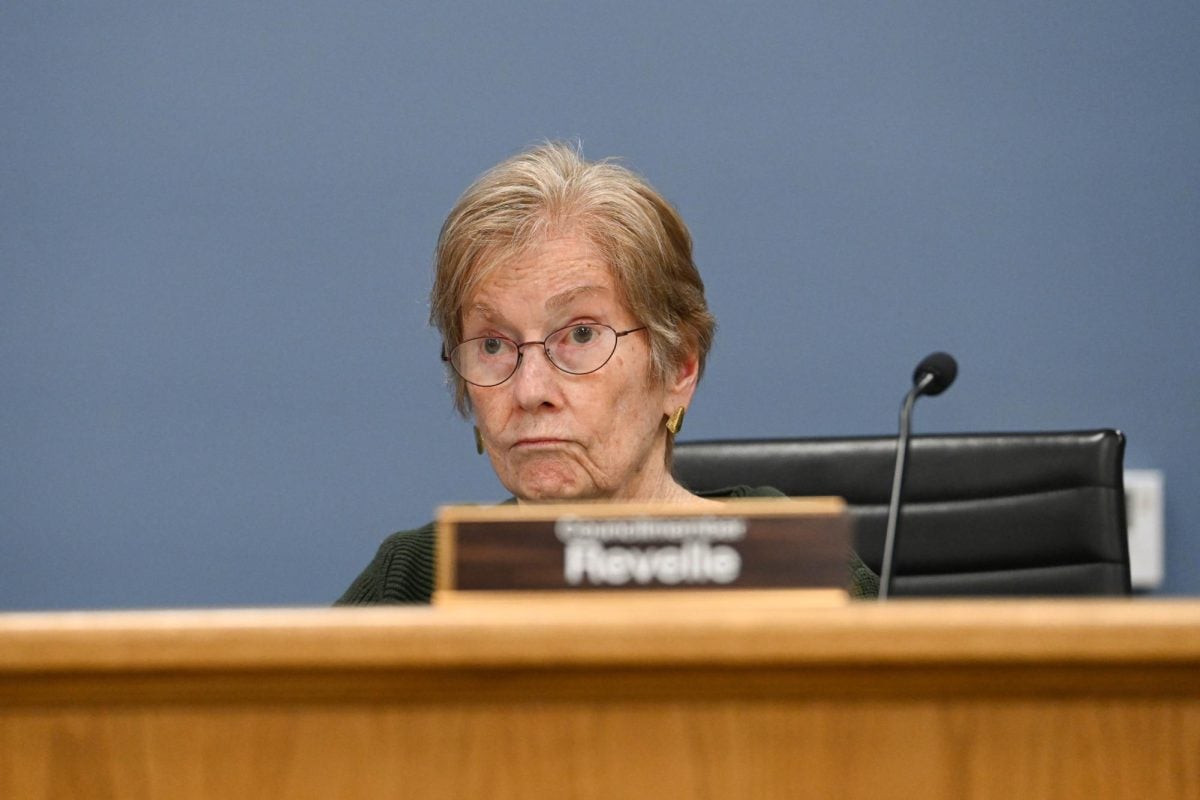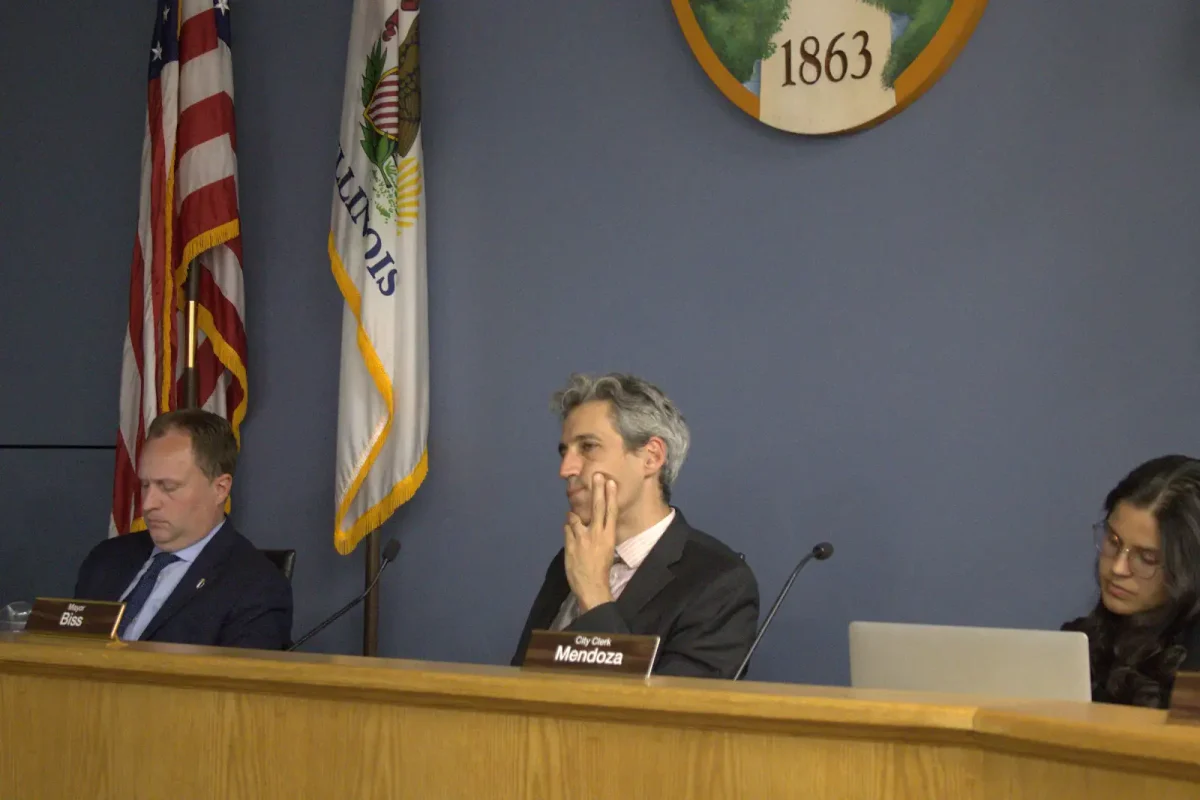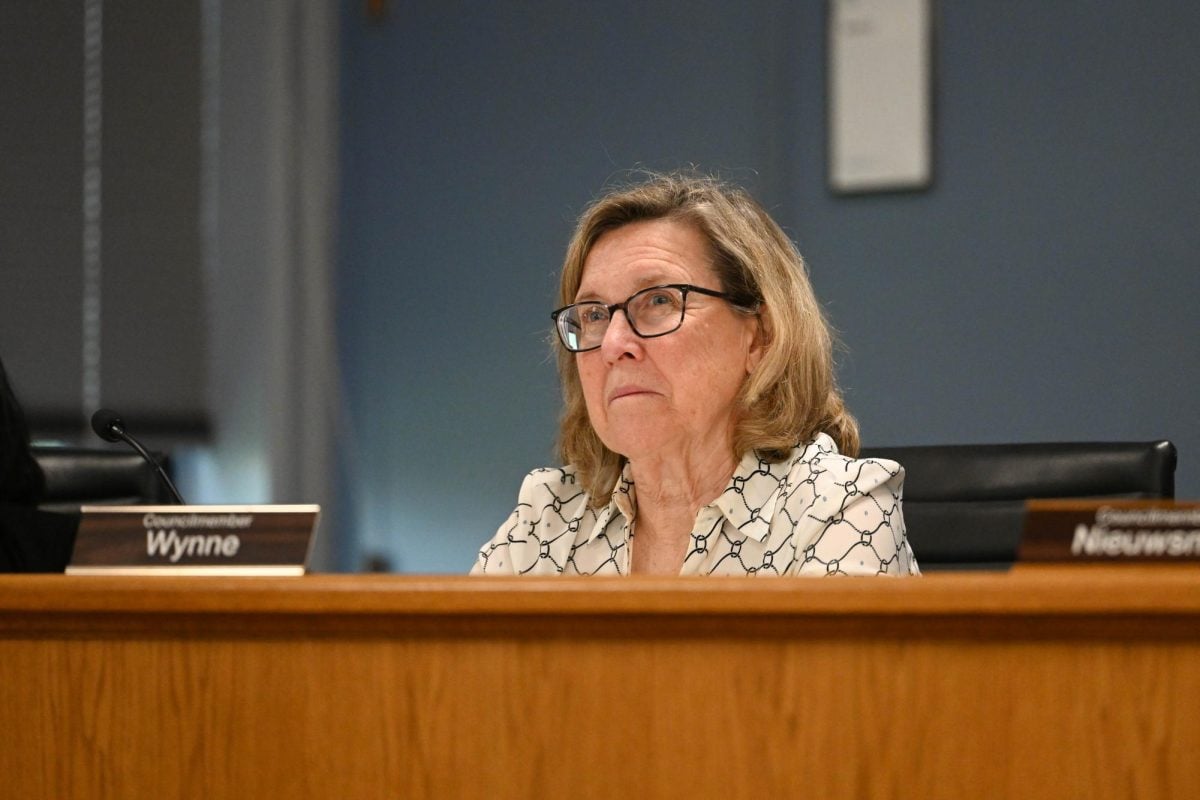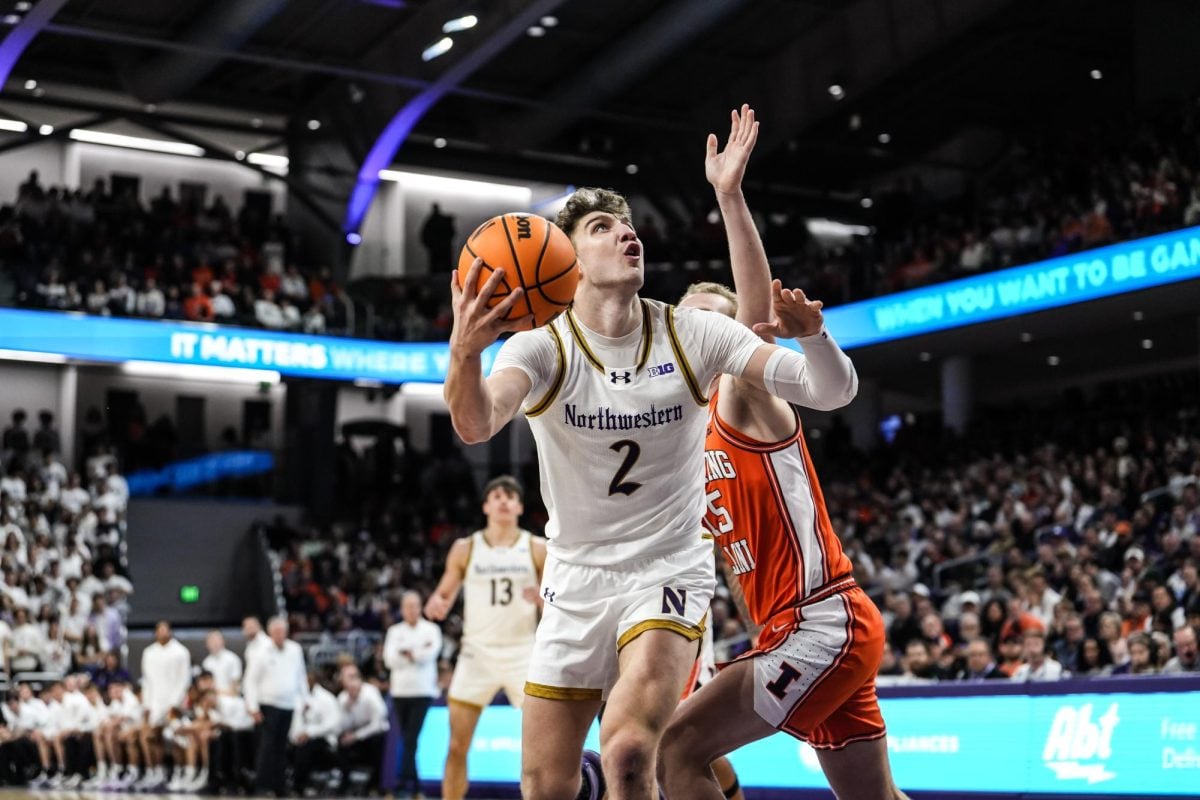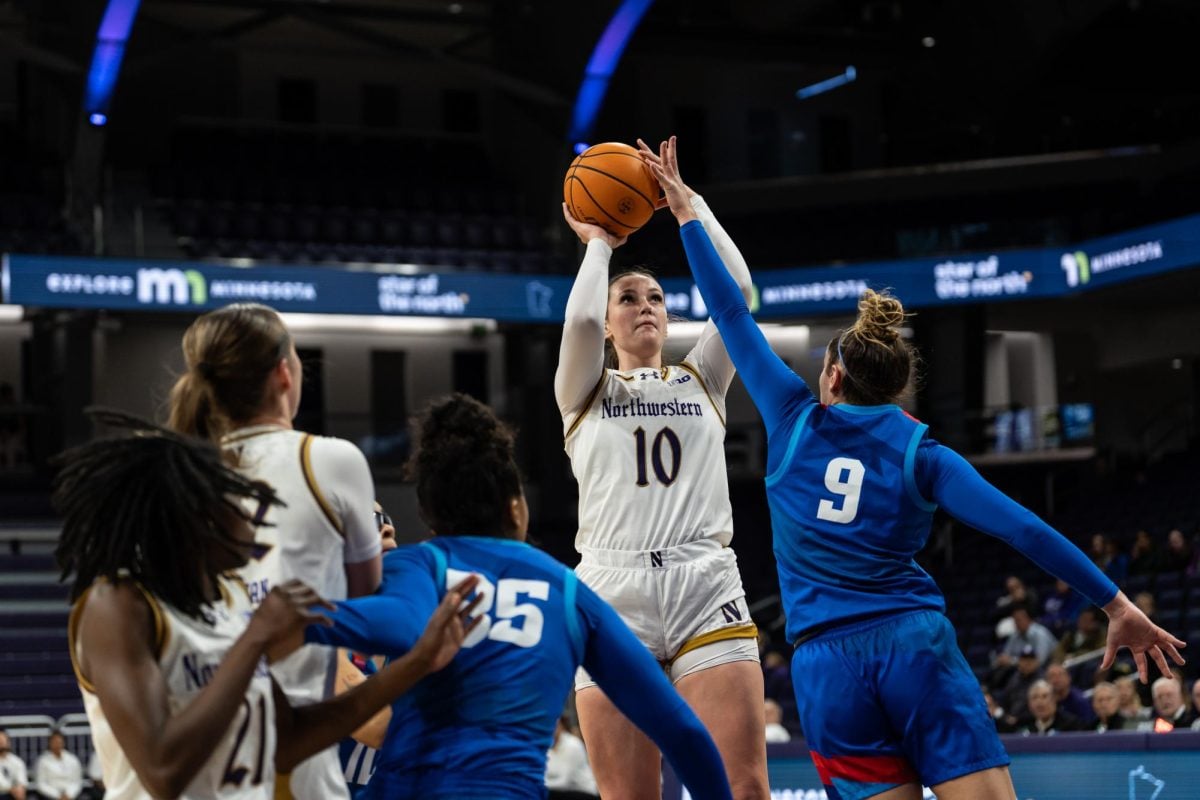After Northwestern submitted a proposed community benefits agreement to City Council just hours before the council’s Monday night meeting on NU’s Ryan Field rebuild, residents and councilmembers had strong reactions to the proposed agreement — and how it could impact the community amid the potential stadium rebuild and proposal to host concerts at the venue.
CBAs are commonly made between developers — including private universities — and their neighboring communities to provide financial support for cities and workers.
Residents and officials, particularly from the Northwestern Accountability Alliance, have been calling for a CBA over the past several months as NU has aimed to push its $800 million stadium rebuild through the city’s zoning approval process. Many residents have said the city should not approve NU’s plan to host public-facing concerts at Ryan Field without a CBA.
NU’s CBA commits $100 million to initiatives in Evanston over a period of 10 years starting in 2027, including $500,000 per year toward workforce development and $250,000 for developing and renovating downtown Evanston.
The CBA also proposes for NU to increase its annual donations to the city through the Good Neighbor Fund from $1 million to $3 million. The fund was established in 2015 for NU to contribute to city projects jointly agreed upon by the mayor and University president.
David DeCarlo, president of the Most Livable City Association, a resident-led group opposing the stadium, called NU’s CBA announcement an “11th-hour surprise” ahead of Monday’s meeting.
“There’s a lot missing from their so-called CBA, which is not a real CBA. It doesn’t have any enforceable environmental or labor commitments,” DeCarlo said.
NU’s Senior Executive Director of Neighborhood and Community Relations, Dave Davis, said that the University is “super excited” about the CBA at Monday’s meeting.
The CBA will be funded from “a combination of University resources and incremental tax revenues driven by and assuming concert events occur at Ryan Field,” University spokesperson Hilary Hurd Anyaso said.
She added that the University has prioritized community engagement in its stadium plans since the rebuild was announced in Sept. 2022. Anyaso said meetings with residents helped the University choose initiatives that are “responsive to the needs and aspirations of the broader Evanston community.”
However, at Monday night’s meeting, Ald. Thomas Suffredin (6th) was skeptical that NU involved the Evanston community in drafting the CBA given its last-minute filing.
“One of the criticisms we heard during that three hours of public comment is a community benefits agreement needs to be the result of community discussion,” Suffredin said. “I think it’s understandable that there’s skepticism about something that the University’s been working on for so long (popping) in the afternoon of a very consequential vote.”
Ald. Devon Reid (8th) asked NU officials why the University did not tie the CBA’s agreed $100 million donation to the Consumer Price Index, which would ensure the contributions won’t change with inflation over the proposed 10 years. NU representatives did not comment on the question.
Monday’s meeting also brought over 100 public commenters to the council chambers, many of whom shared their thoughts on NU’s proposed CBA.
NU Ph.D. candidate Adam Goldsmith urged the council to only approve the stadium rebuild when NU presents a “transparent” CBA, arguing that NU only presented the agreement due to public pressure.
“Why only 10 years when the stadium is operating into the foreseeable future?” Goldsmith asked.
Sixth ward resident Mary Young, however, is “thrilled” about NU’s CBA.
As a career educator, Young is excited about the CBA’s support for education and Evanston/Skokie School District 65. NU will donate $500,000 annually to Evanston’s two school districts, “supported by a ticket surcharge on all concert tickets at Ryan Field.”
Parts of the CBA rely on revenues from the rebuild, prominently from hosting concerts at the stadium. According to the Monday news release, the University will provide $2 million in annual tax revenues to the city “driven by and assuming concert events occur at Ryan Field.”
SESP sophomore Anusha Kumar, a member of Fossil Free Northwestern, said she supported a different CBA that more closely mirrors those established at peer universities, such as Yale University.
“Northwestern has the ability to rightfully contribute to Evanston’s reparations program, make meaningful investments in affordable housing for low-income residents and commit to environmentally sustainability and just labor conditions for workers throughout the duration of the project,” she said.
Councilmembers voted 5-4 to introduce the rezoning ordinance that would allow six concerts per year at the stadium, after a tiebreaking vote by Mayor Daniel Biss. The council voted 5-3 in favor of introducing the ordinance to allow NU to rebuild the stadium.
Council also discussed adding “placeholder language” to ensure a CBA is legally enforceable but said they will negotiate a final agreement with the University over the next few weeks.
The council will vote for action on both ordinances at its Nov. 13 meeting.
Most Livable City Association released a statement Tuesday expressing disappointment in council’s choice to move forward with plans for the stadium rebuild and rezoning and criticized NU for leaving community stakeholders out of the CBA process.
“Even this new proposal falls far short of the kinds of contributions Northwestern’s peer universities provide to their hometowns — and without demanding a permanent, irreversible zoning change in return,” DeCarlo said.
Email: [email protected]
Twitter: @LilyOgburn
Related Stories:
— City Council narrowly introduces Ryan Field concert plan, setting up contentious November vote
— NU proposes $100 million community benefits agreement amid Ryan Field talks
— Land Use Commission rejects NU’s plan to host concerts at Ryan Field, approves stadium rebuild
